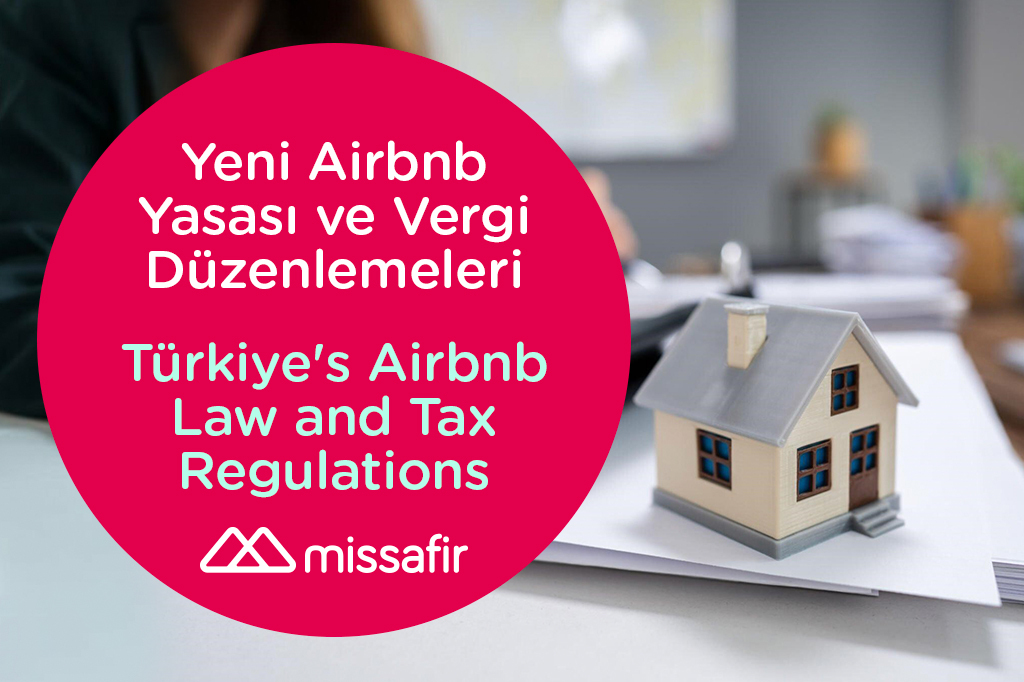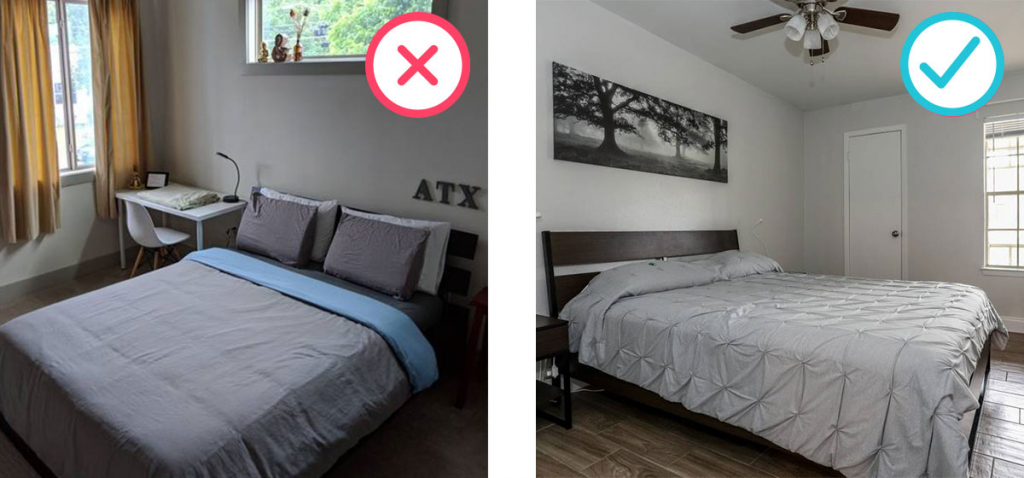New Airbnb Law
Details of the law draft presented to the Grand National Assembly of Turkey (TBMM) by the Ministry of Culture and Tourism regarding the status of short-term rental homes have been revealed. After the draft becomes law, homeowners will need to obtain a ‘tourism house’ certificate approved by the Ministry of Tourism in order to rent their properties through the Airbnb Turkey platform. The new Airbnb law also introduces some changes in tax regulations.
Short-Term Rental Status
According to the new Airbnb law draft, all rentals less than 100 days fall under the short-term rental status. To rent out these properties, a ‘tourism house’ certificate is required. However, rentals that are for a single period exceeding 100 days are not included in this law draft.
What is a Tourism House? What is a Tourism House Certificate?
The document required to carry out short-term rentals in your property for periods less than 100 days is called the Tourism House Certificate. According to the draft, short-term rentals cannot be conducted in properties without this certificate. However, the tourism house certificate is mandatory for short-term rentals on Airbnb.
For more information about the Tourism House status, you can review our article titled “What is a Tourism House?”.
New Airbnb Law: Who Issues the Tourism House Certificate?
According to the current version of the law draft, this certificate is issued by the Ministry of Culture and Tourism. Additionally, there is a provision stating that the authority could also be delegated to provincial governorships (valilik). However, as the law has not yet come into effect, there is no clarity on this matter at the moment.
What are the Requirements to Obtain a Tourism House Certificate?
- For apartments: Unanimous approval of all property owners in the building.
- For residential complexes: Unanimous approval of the property owners in the building where the apartment intended for rental is located.
- Application to the Ministry of Culture and Tourism by the title owner(only the title owner can apply).
- For private houses and villas: Direct application to the Ministry of Culture and Tourism without the need for approval from neighboring title deed holders.
Property owners can obtain a tourism house certificate in this manner. Homeowners with a property holding the tourism house status can rent out their properties for short terms either themselves or through companies holding the “A-group tourism certificate” from the Association of Turkish Travel Agencies (TÜRSAB). Working with intermediary firms that do not possess this tourism certificate can lead to significant fines.
Rent Out Your Home Easily With TÜRSAB A-Group Tourism Certified Missafir!
With Missafir, Turkey’s first and largest property management brand, short/medium-term home renting is very easy! Missafir, a TÜRSAB A-group tourism company, provides you with certified, legal, and comfortable property management services for your rentals under 100 days. Join Missafir and enjoy the comfort of hosting!
New Airbnb Law: Tourism House Plate
According to the law draft, apartments that obtain the tourism house certificate will be given a tourism house plate. It will be mandatory to display this plate at the entrance of homes with this status. Property owners who fail to display this plate will face monetary fines.
New Airbnb Law: Penalties for Renting Without Tourism House Certificate
The new Airbnb law imposes penalties on those who rent out properties short-term without possessing a tourism house certificate. For the first offense, the fine is 100,000 TL, and for subsequent violations, fines can reach up to 1,000,000 TL.
If apartments with the tourism house certificate fail to display the required plate at their entrance, homeowners face fines starting from 100,000 TL for the first offense and up to 500,000 TL for continued non-compliance.
When Does the New Airbnb Law Become Valid?
The new Airbnb law will become valid after January 1, 2024.
Airbnb Tax Regulations
After the enactment of the law, those who wish to rent out their homes via Airbnb and similar platforms will, as mentioned, be required to obtain a certified certificate from the Ministry of Tourism.
Homeowners were already paying taxes under Airbnb tax regulations. However, with the new law, additional tax obligations (such as the tourism house certificate, plate, etc.) will arise.
Details on Airbnb Taxation System
Since daily accommodation services are also considered as commercial activities, it is important to be informed about Airbnb tax regulations. Practices related to Airbnb finance vary from country to country. In some countries, Airbnb makes tax payments on behalf of the homeowners, while in others, they might deduct Value Added Tax (VAT) on the service fee.
In the following section, we will discuss the tax system and tax regulations for short and long-term rentals in Turkey. This way, you will find an answer to the question “Is Airbnb safe?” and take the necessary precautions.
How Does Airbnb Tax System Work?
What is Airbnb? Airbnb is a short-term accommodation-sharing platform(link) that is available in many countries. Every country has different tax legislation on short term rental. When it comes to taxes, we deal with this topic a little more seriously. Since we know the legal sanctions, is Airbnb legal? question and its answer is kind of a big deal for us. Airbnb deals with the tax issue under two separate headings: one is local taxes and the other is the value-added tax (VAT).
Airbnb has legal responsibility in some countries for VAT. These countries are all the EU countries, Iceland, South Africa, Albania, Norway, Switzerland, and Japan. In these countries, Airbnb receives service charge together with VAT. In China, Airbnb is obliged to receive VAT.
Airbnb Turkey leaves the responsibility of local taxes to its users. Airbnb Hosts can only ask for the payment of local taxes when the accommodation is completed. They may receive the amount required for tax by hand or by submitting an additional proposal.

Turkey’s Rental Tax Legislation
According to the Tax guide for Taxpayers Generating Rental Income published in 2018, those who earn a rental income of 500 TL and above, and for short-term leases, are obliged to make payments through bank and postal administrations regardless of the amount. And those who earn 3900TL and above rental income, are obliged to declare their income. Airbnb tax rates payable vary depending on the amount of income. You can have access to the updated rental and tax-related legislation on http://www.gib.gov.tr/sites/default/files/fileadmin/beyannamerehberi/2018_kirageliri.pdf address and get further info.
As can be understood from this information, Airbnb income may be subject to tax when it exceeds a certain amount. Since it is the ministry’s job to carry out Airbnb tax review, Airbnb doesn’t do it. Because of that, while renting out your apartment on Airbnb, it is important to have foresight on whether you will be subject to tax or not. In Turkey, Airbnb does not take responsibility for taxes, it is your responsibility fully to deal with payment and taxpayers’ operations. Since it is your commitment, Airbnb does not make you pay a tax penalty, however, if you do not commit to your responsibilities, you might be fined by the ministry of finance.
How does Airbnb Tax process work in Turkey?
After obtaining all this information, you might still be asking if Airbnb is legal in Turkey. Every activity Airbnb conducts in Turkey is legal. As an Airbnb host, you will not face any problems as long as you fulfil your responsibilities in legal Airbnb tax and a few other obligations properly. Even though from time to time you might hear an unconfirmed rumour saying that Airbnb is prohibited in Turkey, however, these rumours do not reflect reality and Airbnb Turkey carries out their activities at full pelt.
Before renting out your apartment temporarily, it is essential for you to comprehend how you are responsible for Airbnb tax and perform your rental activities accordingly.
Now if you are saying ‘I want to rent out my house on Airbnb’ and get a high profit from it, you can fill out the form on our ‘get offer’ page and see how much you will earn from it.




Where can we apply for this permit? is there a website or do we have to apply in person and when should we start applying? Thanks!
Hello Zaher,
To get a tourism house permit as a homeowner, you can apply to the Ministry of Culture and Tourism of Turkey or the relevant governorship between January 1, 2024, and February 1, 2024. Just let you know that, you can partner with Missafir to maximize your rental tourism house income using our tech-driven property management tools. Please don’t forget to complete our lead form at: https://www.missafir.com/en/rent-my-home/
Based on my understanding, it appears that for my neighbor to obtain a host certificate from the Ministry of Culture and Tourism of the government of Turkey for their Airbnb rental, they would be required to seek permission from their neighbor.
Based on my understanding, it appears that for my neighbor to obtain a host certificate from the Ministry of Culture and Tourism of the government of Turkey for their Airbnb rental, they would be required to seek permission from their neighbor.?
Under certain conditions, yes. Especially in communal living areas (like apartments), homeowners who want to rent their property for less than 100 days through platforms such as Airbnb must obtain permission from their neighbors living in the same apartment building. They also must apply for tourismh house permit from the Ministry of Culture and Tourism of the government of Türkiye.
How to call missafir for handling airbnb
Rafe
Hello,
You can use this contact form or
You can reach us via this contact info:
[email protected]
amazing!